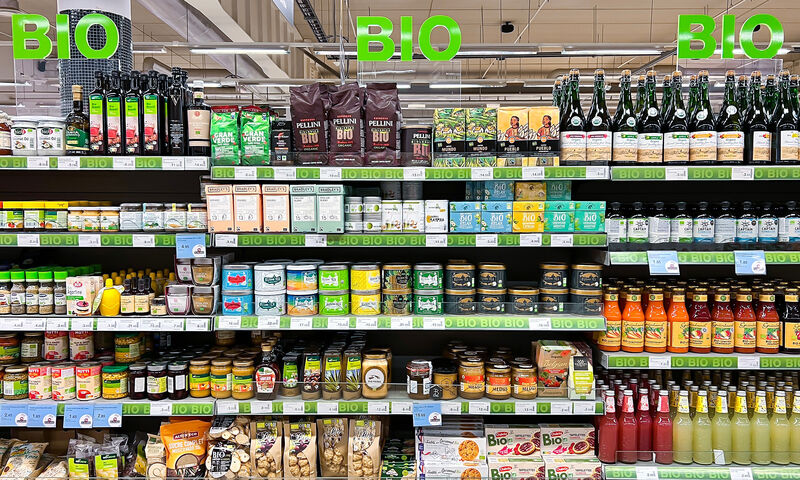NEWS
Organic price

© Tanya Keisha – stock.adobe.com
We made 1300 visits to supermarkets to compare the efforts of the big retailers in favor of healthy and sustainable food. Here’s what we found out about organic prices.
Although most French people recognize the environmental and health benefits of organic production, three quarters of them say that they are limited in their consumption of organic products because of the prohibitive price of labeled products (1). Two UFC-Que Choisir studies, published in in 2017 AND in 2019, suggested that part of this high cost comes from the higher margins that large retailers choose to make on this product category. Our new research, specifically based on visits to 1,300 stores in the fall of 2023, now shows that not all brands are created equal.
We recorded the lowest prices found in stores and online for 17 different product categories (seasonal fruits and vegetables and private label processed products), organic and conventional. This allowed us to see that the price differences between these two production methods are not at all that enormous at all distributors, since the additional cost for organic is limited to 59% in Lidl, while it reaches a record 86% in Monoprix.
The consequences for consumers’ wallets are colossal. We simulated a shopping basket filled with 17 studied organic products: its price varies from €88 in Lidl to €116 in Monoprix! The price difference is even greater than that found between these two brands for unbranded products.
Of course, price is not the only criterion that affects organic consumption. The variety of products available and their promotion (especially in promotional catalogs) also play a big role. Furthermore, a healthy and sustainable diet is not limited to buying organic products, far from it: nutritional quality, availability local products and vegetarian ready meals, packaging reduction… all these criteria count. They are therefore also taken into account in ours brand ranking mass distribution.

(1) Source: Organic Agency.
